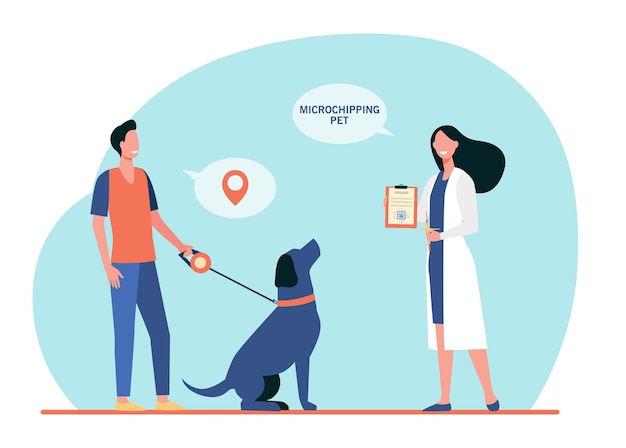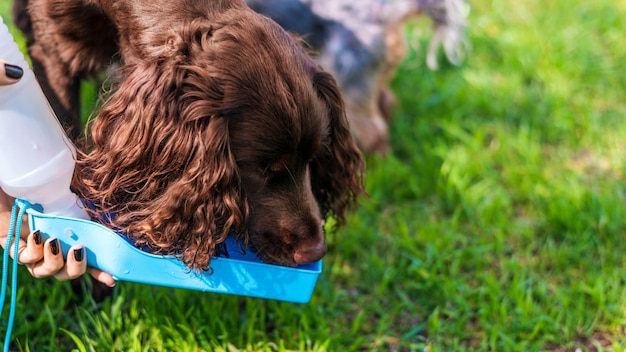Identifying Digestive Issues in Pets: Holistic Signs and Solutions


Identifying Digestive Issues in Pets: Holistic Signs and Solutions
Digestive issues can quietly disrupt your pet’s comfort, energy, and overall health. If you have noticed your dog or cat experiencing unusual stomach upset, irregular bowel movements, or changes in appetite, you are not alone—gastrointestinal problems are among the most common reasons pet owners seek veterinary guidance. At VitalWell Holistic Veterinary Center, located at 21748 State Rd 54, Lutz, FL 33549, our team of veterinarians specializes in holistic pet digestive health, integrating natural therapies with modern diagnostics to help pets in Lutz and surrounding communities thrive.
In this blog, we will guide you through the early signs of pet digestive issues, explore what causes these problems, and share how holistic approaches such as acupuncture, nutrition, and advanced therapies can restore your pet’s gastrointestinal balance. You will also discover when it’s time to schedule an appointment and how our personalized wellness plans address digestive concerns from the inside out. Whether you are searching for answers about pet digestive issues in Lutz or simply want to know how a “vet near me” can support your pet’s gut health naturally, you will find compassionate, expert advice here.
If you are interested in the latest advancements in gut health, you can also explore how our Microbiome Therapy for restoring balance in pets' gut health supports gastrointestinal wellness.
Recognizing Signs of Digestive Issues in Dogs and Cats
Early recognition of digestive problems is the first step toward effective care. Pets are often masters at hiding discomfort, so subtle changes in their behavior or routines may be your first clue. Common signs of pet digestive issues include chronic vomiting, diarrhea, constipation, sudden changes in appetite, or unexplained weight loss. You may notice your dog or cat straining during elimination, passing gas more frequently, or having stools that are unusually soft, hard, or discolored. Other indicators, such as abdominal bloating, restlessness, or excessive licking of the lips, can signal gastrointestinal distress.
For example, a cat that suddenly begins refusing favorite foods or a dog that frequently eats grass and then vomits may be exhibiting early symptoms of digestive imbalance. Additional warning signs include loud stomach noises, increased thirst, or lethargy after meals. In long-haired breeds, excessive hairballs or regurgitation could also point to underlying gut issues. If your pet’s symptoms persist for more than a day or are accompanied by blood in the stool or vomit, prompt veterinary attention is required.
Understanding these signs is especially important for pet owners seeking comprehensive pet digestive care in Lutz. Our veterinary professionals are trained to identify and address subtle behavioral cues that may indicate an emerging problem.
What Causes Pet Digestive Issues?
Digestive problems in pets can arise from a variety of causes. Diet is often a major factor; sudden changes in food, low-quality ingredients, or an unbalanced diet lacking in essential nutrients can upset your pet’s gastrointestinal tract. Food intolerances or allergies to ingredients such as grains, chicken, or beef are also increasingly common and may result in chronic gastrointestinal symptoms.
Environmental factors, including exposure to toxins, spoiled food, or ingesting foreign objects, can trigger acute digestive distress. Additionally, stress from changes in the household, new pets, or travel can impact gut health, particularly in sensitive animals. Chronic medical conditions, such as inflammatory bowel disease (IBD), pancreatitis, intestinal parasites, or underlying organ dysfunction, are also frequent contributors to ongoing digestive complaints.
The warm, humid climate in Lutz and the Tampa Bay area can sometimes increase the risk of food spoilage or parasites, making pet digestive issues in Lutz a particular concern during the summer months. Understanding your pet’s unique risk factors is essential for developing a tailored approach to holistic pet digestive health.
Holistic and Integrative Treatments for Pet Digestive Health
At VitalWell Holistic Veterinary Center, we believe in treating the whole pet, not just the symptoms. Our approach to holistic pet digestive health combines advanced diagnostics with natural therapies to restore balance and comfort. Treatment options are always customized based on your pet’s individual needs, medical history, and lifestyle.
Nutritional Therapy and Diet Modification
A cornerstone of holistic gastrointestinal care is nutrition. We work closely with pet owners to identify food sensitivities, eliminate potential allergens, and recommend diets rich in whole foods, probiotics, and prebiotic fibers that support the gut microbiome. For pets struggling with chronic digestive issues, transitioning to a limited-ingredient or novel protein diet may help reduce inflammation and restore normal function.
For those interested in advanced gut health solutions, our Microbiome Therapy for restoring balance in pets' gut health can play a transformative role by introducing beneficial bacteria and supporting a balanced digestive environment.
Acupuncture and Herbal Medicine
Acupuncture is a gentle, time-tested therapy that can help regulate gastrointestinal motility, reduce nausea, and relieve discomfort in both dogs and cats. When used in conjunction with herbal medicine, acupuncture may offer relief for conditions such as IBD, colitis, or chronic constipation. Our veterinarians are trained in traditional Chinese veterinary medicine and can design a personalized protocol to address your pet’s specific symptoms.
Ozone and Laser Therapy
For pets with inflammatory or immune-mediated digestive disorders, therapies such as ozone and laser treatments can offer additional support. Ozone therapy harnesses medical-grade ozone to reduce inflammation and promote healing throughout the gastrointestinal tract. You can learn more about how Ozone Therapy supports immune function and recovery in pets with chronic digestive issues. Laser therapy, on the other hand, delivers targeted light energy to decrease inflammation and stimulate tissue repair, which can be especially helpful for pets recovering from surgery or acute illness.
Integrative Care and Advanced Diagnostics
Our veterinary team utilizes a range of modern diagnostic tools, including digital radiology and laboratory testing, to uncover underlying causes of digestive disturbances. These technologies help us develop effective, minimally invasive treatment plans that blend holistic and conventional medicine when needed. Services such as stem-cell therapy, PRP therapy, and rehabilitation can further support pets with complex gastrointestinal or metabolic conditions.
Prevention and Home Care for Lifelong Digestive Wellness
Maintaining your pet’s digestive health at home is a powerful way to prevent future problems and ensure a vibrant life. Key steps include feeding a balanced, high-quality diet that matches your pet’s age, activity level, and unique sensitivities. Fresh, clean water should always be available, and sudden changes in food should be introduced gradually to avoid upsetting the gut.
Regular exercise supports healthy digestion by promoting normal bowel movements and reducing stress. For pets in Lutz and surrounding communities, early morning or evening walks may be preferable during hot months to avoid heat-related digestive stress. Minimizing exposure to table scraps, toxins, or spoiled food is also vital.
Routine wellness examinations allow our veterinary professionals to catch early signs of digestive imbalance before they become major concerns. These checkups provide an opportunity to adjust diet plans, assess weight trends, and recommend supplements or therapies tailored to your pet’s evolving needs. Incorporating supportive therapies, such as acupuncture, laser, or rehabilitation to restore mobility and comfort, can also enhance overall well-being and resilience.
When to Seek Veterinary Assistance for Pet Digestive Issues
While mild, short-lived digestive upsets may resolve with dietary management and rest, certain symptoms should prompt you to schedule an appointment promptly. Warning signs that require veterinary evaluation include persistent vomiting or diarrhea lasting more than twenty-four hours, blood in the stool or vomit, severe abdominal pain, dehydration, or sudden collapse. In puppies, kittens, seniors, or pets with chronic health conditions, even minor digestive changes can escalate quickly and should be addressed without delay.
If you are searching for a “quality vet near me” or “pet digestive care in Lutz,” our team of veterinarians at 21748 State Rd 54, Lutz, FL 33549 is here to help. We encourage you to reach out if you notice any concerning changes in your pet’s appetite, stool, or behavior—early intervention can make a significant difference in outcomes.
Take the Next Step Toward Holistic Pet Digestive Health in Lutz
Digestive issues do not have to disrupt your pet’s happiness or your peace of mind. With a holistic, integrative approach, our veterinary professionals can help restore your pet’s digestive balance and support lifelong wellness. If you are noticing symptoms of pet digestive issues in Lutz or searching for a “vet near me” that offers natural solutions, we invite you to schedule an appointment with our compassionate team.
To learn more about our advanced therapies for gut health, including Microbiome Therapy for gastrointestinal wellness, or to discuss a personalized nutrition plan, contact VitalWell Holistic Veterinary Center today. Our veterinarians are committed to helping pets in Lutz and surrounding communities achieve optimal health.
Call us at (813) 501-4008 or visit our Lutz location to schedule your holistic pet digestive health consultation. We look forward to partnering with you and your pet for a happier, healthier future.
This article is intended for informational purposes only and does not replace professional veterinary evaluation. If your pet is experiencing severe or persistent digestive symptoms, please consult a licensed veterinarian promptly.


















